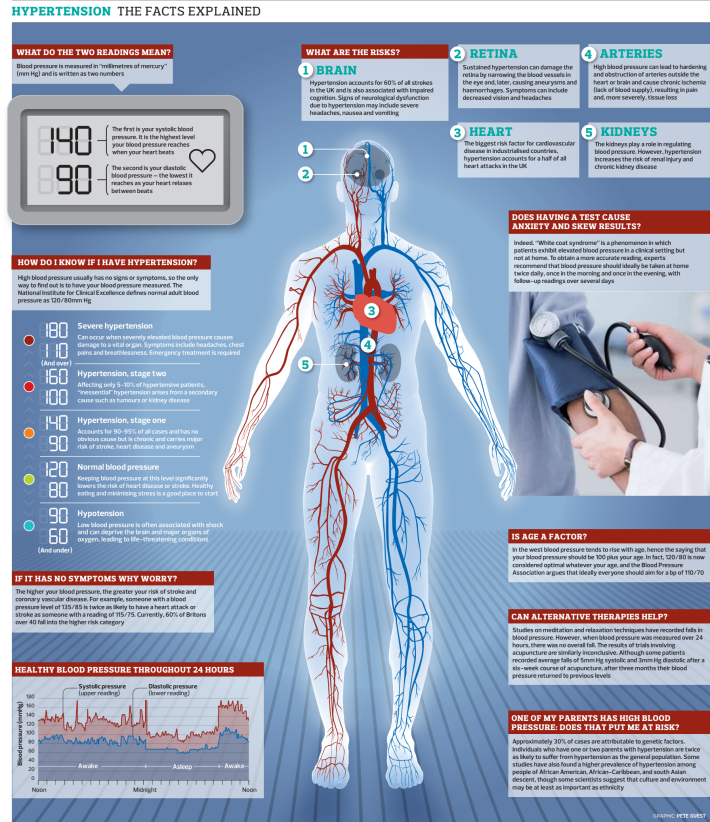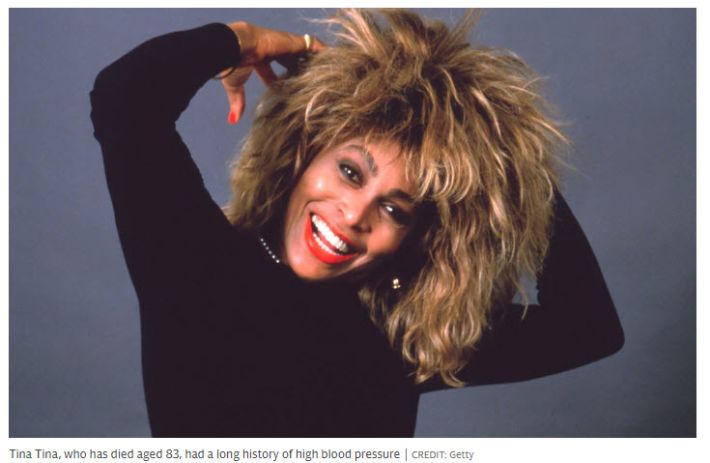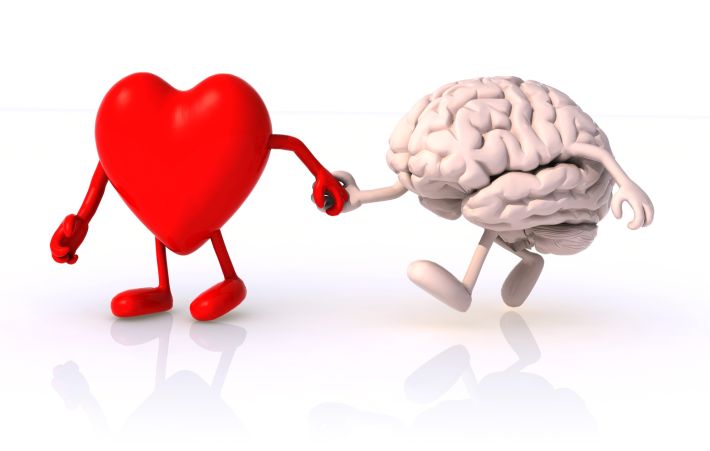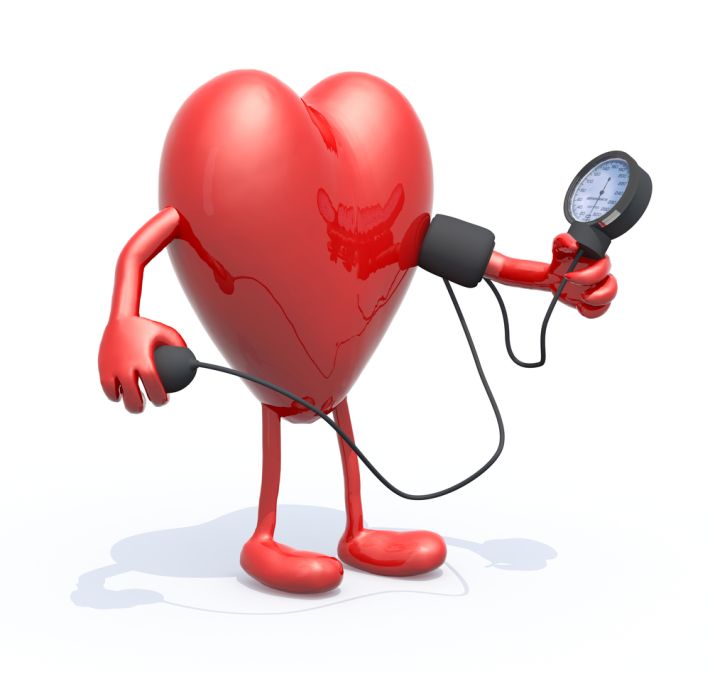- in Health and Wellness by Tony
Hypertension on the Couch

Hypertension, commonly known as high blood pressure, is often referred to as the “silent killer” because it can go unnoticed until it causes severe health problems. In fact, hypertension affects over 1 billion people worldwide and is responsible for an estimated 7.5 million deaths annually. Understanding the risks of hypertension and how to prevent it is crucial for maintaining good health and longevity.
More...
What is Hypertension?

Hypertension is a condition that occurs when the force of blood pushing against the walls of the arteries is consistently too high. Blood pressure is measured in two numbers - the systolic pressure (when the heart beats) and the diastolic pressure (when the heart is at rest). A normal blood pressure reading is typically around 120/80 mmHg. However, a reading consistently above 140/90 mmHg can be considered hypertensive and requires medical attention.
Hypertension is classified according to severity:
-
- Stage 1 hypertension — clinic blood pressure ranging from 140/90 mmHg to 159/99 mmHg and subsequent ABPM daytime average or HBPM average blood pressure ranging from 135/85 mmHg to 149/94 mmHg.
- Stage 2 hypertension — clinic blood pressure of 160/100 mmHg or higher but less than 180/120 mmHg and subsequent ABPM daytime average or HBPM average blood pressure of 150/95 mmHg or higher.
- Stage 3 or severe hypertension — clinic systolic blood pressure of 180 mmHg or higher or clinic diastolic blood pressure of 120 mmHg or higher.
- Accelerated (or malignant) hypertension is a severe increase in blood pressure to 180/120 mmHg or higher (and often over 220/120 mmHg) with signs of retinal haemorrhage and/or papilloedema (swelling of the optic nerve).
- Ambulatory blood pressure monitoring (ABPM)
- Home blood pressure monitoring (HBPM)

Essential hypertension, also known as primary hypertension, is the most common type of high blood pressure. It means that there is no specific underlying medical condition causing the high blood pressure. Some factors that can contribute to essential hypertension include genetics, lifestyle factors (such as diet and exercise), stress, and age.
It's important to manage essential hypertension, as it can lead to serious health problems, such as heart disease and stroke. Treatment may include lifestyle changes, such as adopting a healthy diet and increasing physical activity, as well as medication to lower blood pressure. Regular check-ups with a healthcare provider are also important for monitoring and managing essential hypertension.
Primary hypertension (which occurs in about 90% of people) has no identifiable cause.
Secondary hypertension (about 10% of people) has a known underlying cause, such as renal, endocrine, or vascular disorder or the use of certain drugs.
Symptoms and Risks of Hypertension

Hypertension is often referred to as the “silent killer” because it typically presents no noticeable symptoms. However, over time it can cause severe damage to the arteries, heart, brain, kidneys and eyes. Hypertension-related health problems include heart attacks, strokes, aneurysms, kidney failure, and vision loss. Hypertension is also a leading cause of dementia and cognitive impairment in the elderly.
Long-term effects of Hypertension
Hypertension affects a quarter of the adult population in the United Kingdom and accounts for 60% of all strokes in the UK and half of all heart attacks, but because the condition is usually symptomless, most people have no idea they are at risk until it is too late.
News
The legendary late singer Tina Turner spent the latter part of her life battling chronic kidney disease, ultimately requiring her to have a kidney transplant in 2017.
Surprisingly, Turner’s kidney transplant was linked to her high blood pressure (or hypertension) “If I had known how high blood pressure and kidney disease are connected, I would have been spared a lot of suffering,” she revealed on Instagram, adding that she regretted the fact she’d stopped taking her medication and turned to homeopathy.

Hypertension and chronic pain
Hypertension and chronic pain are two common health issues affecting millions of people worldwide. While these conditions may seem unrelated, growing evidence suggests a connection between them.
There are many types of chronic pain, including migraines, arthritis, and back pain, among others. Recent studies have found that hypertension and chronic pain may be linked.
One possible explanation for this connection is that chronic pain can cause stress, which can then lead to hypertension. When you experience chronic pain, your body is constantly in a heightened state of stress, which can increase blood pressure levels.
However, this link is not one-way – hypertension can also lead to chronic pain. High blood pressure is known to damage blood vessels, nerves, and other tissues in the body, which can cause pain.
For example, high blood pressure can lead to headaches, which are a common form of chronic pain.
Hypertension and mental health

There is a strong connection between hypertension (high blood pressure) and mental health. Chronic stress and anxiety can increase blood pressure levels and lead to hypertension. Conversely, hypertension can also lead to mental health issues such as anxiety and depression due to its impact on overall health and well-being.
Studies have shown that hypertension can lead to an increased risk of anxiety, depression, and other mental health disorders. This is because high blood pressure can change how the brain functions, making it harder to manage emotions and respond to stress effectively.
One of the most common way's hypertension affects mental health is through sleep disturbances. Difficulty falling asleep and staying asleep is a common symptom of high blood pressure and can lead to fatigue, irritability, and anxiety during the day.
Another way hypertension affects mental health is through medication side effects. Some medications for high blood pressure can cause mood swings, depression, and other mental health issues.
High blood pressure in young people may cause long-term brain issues.
Brain injury is cumulative, and it starts sooner than we think, a study presented at the American Stroke Association’s International Stroke Conference 2022 found that high blood pressure in young people ages 20 to 40 appears to be linked to cognitive changes in midlife around age 55, that may increase the risk for cognitive decline and dysfunction later in life.
Thereby raising concerns that the stresses and sedentary lifestyles many have experienced during the pandemic could have a lifelong cognitive impact.
According to Johns Hopkins Medicine, such findings are cause for concern because paediatric hypertension in the United States has increased fourfold over the last 30 to 40 years.
Brain damage caused by Hypertension could contribute to dementia.
Scientists have identified the regions of the brain that are damaged by high blood pressure and may contribute to the development of dementia.
Experts said the finding is a “step forward in understanding the concerning link between high blood pressure and cognitive decline”.
It is the first time scientists have identified these regions. Experts will now look at the specific parts of the brain in more detail to find new ways to treat mental decline among people with high blood pressure. This study also underlines how crucial it is to treat it to keep our brains healthy as we age.
In the future, academics hope the findings will help predict memory loss and dementia. Experts will now look at the specific parts of the brain in more detail to find new ways to treat mental degeneration.
Hormones and Hypertension
Hormones can play a role in hypertension.
Some hormones, like adrenaline and cortisol, can cause an increase in blood pressure in response to stress or anxiety. Hormones like aldosterone can also affect blood pressure by regulating the body’s balance of sodium and potassium. Certain hormonal disorders, like Cushing’s syndrome or hyperthyroidism, can also lead to high blood pressure.
There have been some studies that suggest oxytocin may have a beneficial effect on hypertension. Oxytocin is a hormone that plays a role in social bonding, maternal behaviour, and sexual reproduction. It has also been found to have a vasodilatory effect, which can help relax blood vessels and reduce blood pressure.
One study published in the journal Hypertension found that oxytocin infusion can lower blood pressure in patients with hypertension. Another study published in the Journal of the American Heart Association found that oxytocin receptor gene polymorphisms were associated with lower blood pressure and a reduced risk of hypertension.
Stress and Hypertension:
Blood pressure is under the mercy of environmental stresses and one’s temperament.
For example, it has long been known that the kidneys play a crucial role in regulating blood pressure and the “fight or flight” response, a relationship that suggests a deeper evolutionary connection between blood pressure and our various emotional and psychological states.
High-stress levels produce high amounts of cortisol and adrenaline. When the brain activates the fight or flight mode over time, it causes emotional and physical fatigue. The symptoms that come with that are lack of sleep, which causes strain on the mind and body.
Stress increases blood pressure, which puts the body in a higher category for heart attack and stroke. Stress also triggers unhealthy habits where one can overindulge with unhealthy eating.
In this case, frequent anger and hostility have also been shown to predict coronary events.
As the phenomenon known as “white coat syndrome” attests, having one’s blood pressure taken by a medical professional is sufficient to send some people’s readings soaring. At the same time, meditation and acupuncture have been shown to lower BP, albeit temporarily.
Salt and Hypertension

Salt, or sodium chloride, is an essential mineral that our bodies need to function correctly, and it helps regulate fluids, maintain proper blood pressure, and transmit nerve impulses. However, consuming too much salt can have adverse effects on our health.
When you consume too much salt, your body retains excess water, which can increase blood pressure and strain your heart and blood vessels.
Many experts believe the answer to our problem is salt.
For instance, the Yanomami tribe of Brazil, who eat a diet low in salt and saturated fat and high in fruit, have the lower mean blood pressure of any population on earth – 95/61. Nor does their blood pressure increase with age.
By contrast, in the West, where people eat an average of 10-12 grams of salt daily, blood pressure rises with age by an average of 0.5mm Hg a year.
The American Heart Association recommends consuming no more than 2,300 milligrams of salt per day and, ideally, less than 1,500 milligrams per day. This can be difficult as many processed foods and restaurant meals contain large amounts of salt.
According to Professor MacGregor, who also chairs Consensus Action on Salt and Health (Cash), the connection between salt and higher blood pressure is no longer disputed in severe scientific circles. Yet, for all the scientific consensus, salt-denial stories continue to enjoy wide currency in the media.
Alcohol on hypertension

Alcohol can have a negative impact on high blood pressure. Studies have shown that excessive alcohol consumption can increase blood pressure, and even moderate drinking can have a harmful effect on those with hypertension.
It is suggested that those with high blood pressure limit their alcohol consumption to no more than one drink per day for women and two drinks per day for men. It is also essential to speak with a healthcare provider about any concerns related to alcohol and hypertension, as individual circumstances may vary.
Smoking is a well-known risk factor for high blood pressure, as well as other health problems such as heart disease and stroke. When you smoke, the chemicals in tobacco cause your blood vessels to narrow, which can lead to an increase in blood pressure.
Additionally, smoking is known to damage the lining of your blood vessels, which can also contribute to high blood pressure over time. If you have high blood pressure already, quitting smoking may be an important step in managing your condition.
Managing Hypertension and Mental Health
It’s important to manage hypertension and mental health through healthy lifestyle choices, regular exercise, and seeking support from healthcare professionals.
Besides, practising stress-reducing techniques such as meditation and mindfulness can also be beneficial for both hypertension and mental health.
If you are experiencing symptoms of hypertension or mental health issues, seeking medical advice from a healthcare professional is essential.
Prevention and Treatment of Hypertension
The good news is that hypertension is mainly preventable. Making lifestyle changes such as maintaining a healthy diet, regular exercise, and avoiding smoking and excessive alcohol consumption can go a long way in preventing hypertension.
In some cases, hypertension may be genetic or caused by an underlying medical condition. Working with a healthcare professional to manage the condition through medication or other treatments is essential in these situations. Medication: Sevikar HCT, containing olmesartan medoxomil, blocks the action of angiotensin-II and relaxes your blood vessels.
Whereas, polypill is designed to lower the four key risk factors for heart disease: cholesterol, high blood pressure, high homocysteine and blood platelet function.
Here are a few strategies that can help you to manage hypertension and also improve mental health and reduce the risk of developing mental health disorders.
1. Exercise regularly – Regular physical activity can help lower blood pressure and improve mental health by reducing stress and promoting better sleep.
2. Eat a healthy diet – A balanced diet rich in fruits, vegetables, whole grains, and lean proteins can help lower blood pressure and improve overall health.
3. Manage stress – Stress can increase blood pressure and lead to mental health issues, so it’s essential to find ways to manage it. This can include meditation, deep breathing, or other relaxation techniques.
4. Take medication as prescribed – If you’re taking medication to manage hypertension, be sure to follow your doctor’s instructions and report any side effects that may be affecting your mental health.
5. Reach out for help – If you’re struggling with mental health issues related to hypertension, don’t hesitate to seek help from a mental health professional. They can provide support and guidance for managing both conditions.
Conclusion.
It's essential to understand the dangers of hypertension, so you can take steps to prevent or manage it. It affects people of all ages, races, and genders, and it's estimated that one in three adults has high blood pressure. There is some racial disparity among African Americans with greater risks than Caucasians. Most people who have hypertension don't even know it, which is why it's often called the "silent killer."
Hypertension can significantly impact mental health, but it doesn’t have to control your life. Taking steps to manage blood pressure and prioritise mental health can improve overall well-being and reduce the risk of developing a mental health disorder in my future.
Persistently raised arterial blood pressure (Hypertension) will increase the risk of many conditions, including heart failure, coronary artery disease, stroke, chronic kidney disease, peripheral arterial disease, and vascular dementia. Fact: 50% of heart attacks and strokes are caused by high blood pressure.
If you eat too much salt and not enough fruit and vegetables, or drink too much alcohol, coffee, or caffeine-based drinks, it will increase your risk of high blood pressure. Also, getting too little sleep and not doing enough exercise can also increase your chance, even more, as can being overweight.






